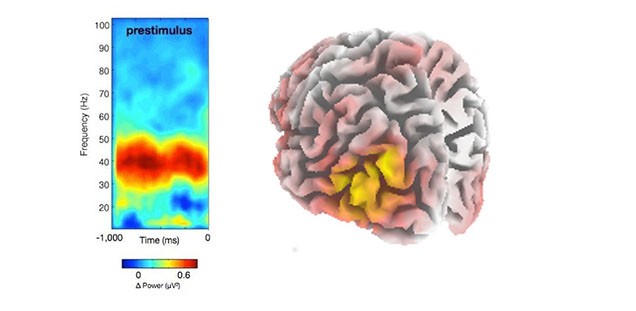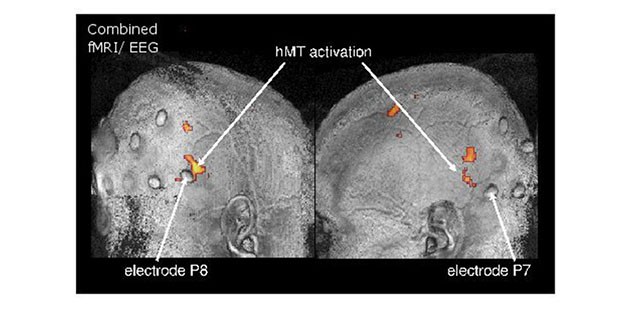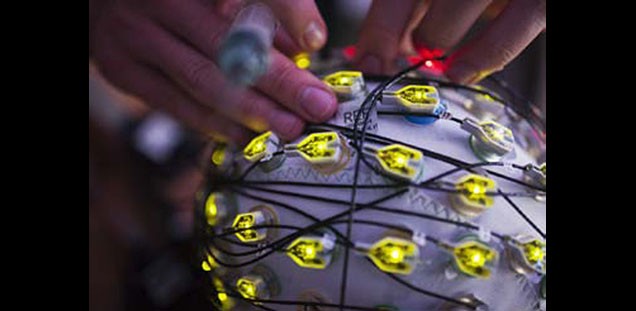Overview
Our group investigates brain systems that are involved in the transformation of experience into enduring memories. Our research focuses on neural information processing in the context of implicit and explicit memory, cross-modal integration and the neural basis of pain. We are using functional magnetic resonance imaging (fMRI) and time-frequency based EEG analysis techniques to examine the systems that contribute to the different aspects of learning and memory. Combined fMRI- EEG experiments are used to describe locations and network dynamics involved in learning and memory. We further incorporate EEG- based Neurofeedback to modulate ongoing activity and examine the consequences for stimulus processing and memory formation.
Carina Jaap is a doctoral student who joined the group in april 2020. In her PhD project, she investigates crossmodal prediction and transfer mechanisms of implicitly gained knowledge. Based on fMRI and behavioral data, she investigates the neuronal structures that are crucial for processing and predicting implicitly gained knowledge. Furthermore, she is interested in learning mechanisms in enriched environments, the study of consciousness and investigating the mechanisms beyond transfer of implicit learned rules between modalities.
Christoph Wittkamp joined our group as a doctoral student in August 2020. In his PhD project he investigates the neural basis of positive and negative expectations on pain. He is engaged in research on the possible modulations of neural activity by verbal instructions, implicit learning mechanisms or by the usage of noninvasive brain computer interfaces. He also examines the neural mechanisms of pain perception by combining fMRI and EEG measurements.
Marike Maack is a doctoral student who joined the group in January 2021. In her PhD project, she investigates crossmodal generalization of mechanisms of implicitly gained knowledge. Based on neuroimaging and behavioural data, she investigates the neuronal correlates that are essential for processing implicitly gained knowledge. Moreover, she is interested in how additional processing instruments impossible influence crossmodal neural components in conscious and unconscious knowledge development.
Maren Wolf joined our group as PhD student in April 2021 to investigate the functional mechanisms underlying the neural effects of expectation on pain. She will use simultaneous EEG/fMRI measurements and brain computer interfaces to explore the link between positive and negative expectations on pain, prestimulus neural activity and subsequent pain perception. Building on this, she is interested in possible voluntarily modulations of prestimulus neural oscillatory activity in regard to pain using neurofeedback.
Jan Ostrowski is a doctoral student who joined our group in July 2021. In his research project, Jan focuses in the role of oscillatory brain states in the formation of associative crossmodal memory content. He will use EEG as well as combined EEG/fMRI measurements to investigate the involvement of particular oscillatory frequency bands and the neural correlates that are tied to crossmodal association learning. In this, brain states preceding stimulus presentation are of special interest.
Alumni
Dr. Neda Salari
Dr. Signe-Luisa Winterling
Dr. Philipp Taesler
Julia Jablonowski



